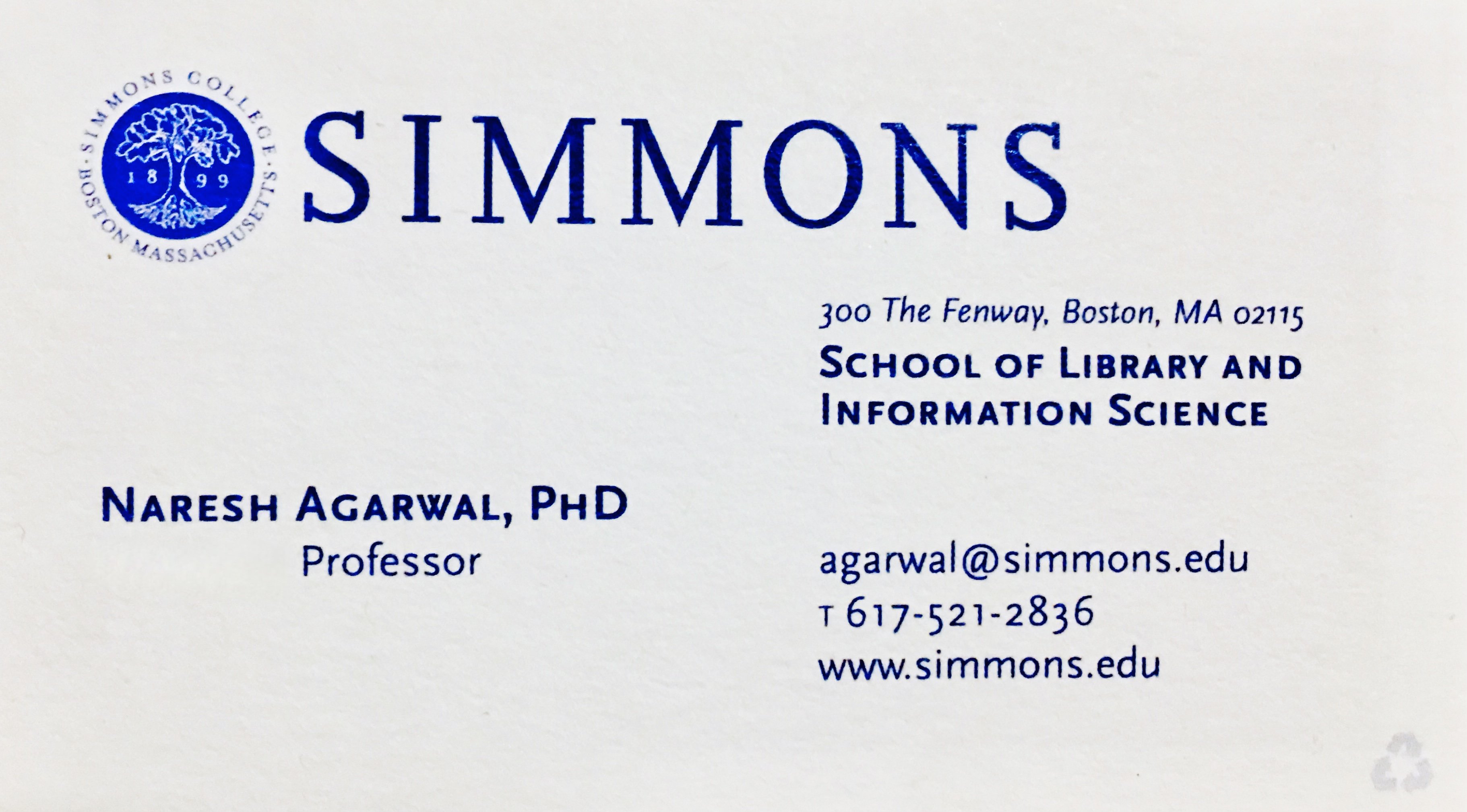Refereed Publications - Information Science & Technology
Context / Information Behavior / Information Seeking

short paper Agarwal, N.K. (2018). What do we mean when we talk about Context? Proceedings of the First Workshop on Context in Analytics. 34th IEEE International Conference on Data Engineering. Paris, France, April 16-19, 2018, 1-4.
book Agarwal, N.K. (2018). Exploring Context in Information Behavior: Seeker, situation, surroundings, and shared identities. In G. Marchionini (Series Editor) Synthesis Lectures on Information Concepts, Retrieval, and Services. San Rafael, CA: Morgan & Claypool Publishers, 9(7), i-163.
panel Koh, K., Oh, K. E., Agarwal, N. K., & Belkin, N. J. (2015). Information seeking and beyond: Impacts of studying different forms of information behavior. Proceedings of the Association for Information Science and Technology, 52(1), 1-5.
journal article Agarwal, N.K., Xu, Y. (C.) & Poo, D.C.C. (2011). A context-based investigation into source use by information seekers. Journal of the Association for Information Science and Technology, 62(6), 1087-1104.
conference paper Agarwal, N.K. (2011). Ram’s search for Sita in the Ramayana: Information seeking in an ancient Indian epic. In Research Frontiers in the Study of Information & Religion: Proceedings of the First Annual Conference on Information and Religion, Kent, OH, May 20 (pp. 1-22).
conference paper Agarwal, N.K. (2011). Information source and its relationship with the context of information seeking behavior. In Proceedings of iConference 2011, Seattle, WA, Feb 8-11 (pp. 48-55). New York, NY: ACM.
conference paper Agarwal, N.K., Xu, Y.(C.) & Poo, D.C.C. (2009). Delineating the boundary of ‘context’ in information behavior: Towards a contextual identity framework. Proceedings of the ASIS&T 2009 Annual Meeting, Vancouver, B.C., Canada, Nov 6-11, 46(1), 1-29.
dissertation Agarwal, N.K. (2009). Information Seeking Behavior and Context: Theoretical Frameworks and an Empirical Study of Source Use (Doctoral dissertation). Retrieved from ScholarBank@NUS (Open Ph.D Theses 6523)
fish bowl dialogue Discussant in Forecasting the Next 10 Years in Information Behavior Research: A Fish Bowl Dialogue. Annual Meeting of the Association for Information Science & Technology, Vancouver, Canada, Nov 6-11, 2009.
full-paper presentation Agarwal, N.K. (2008). Information-seeking behavior based on an integrated framework of information seeking & information retrieval. 9th APRU Doctoral Students Conference, Vladivostok, Russia, Jul 14-18.
Mobile Information behavior / Non-response behavior

journal article Agarwal, N.K. & Lu, W. (2021; accepted with revisions). The Yin and Yang of smartphones: An interview study of smartphone use and its effects. Global Knowledge, Memory, and Communication, Accepted with revisions on March 2, 2021.
conference paper Agarwal, N.K. & Lu, W. (2020). Response to non-response: How people react when their smartphone messages and calls are ignored. In Proceedings of the 83rd Annual Meeting of the Association for Information Science & Technology, October 23-28, 2020, 57, e260, 1-14. (Awarded ASIS&T SIG USE Best Information Behavior Conference Paper Award, 2020)
poster Agarwal, N.K. & Lu, W. (2019). Towards effective use and balance: Investigating pros and cons of smartphone use in an interview study. 82nd Annual Meeting of the Association for Information Science & Technology, Melbourne, Australia, Oct 19-23, 2019.
book chapter Agarwal, N.K. (2014). Use of touch devices by toddlers and preschoolers: Observations and findings from a single-case study. In Bilal, D. and Beheshti, J. (Eds.) New Directions in Children and Adolescents' Information Behavior Research (pp. 3-38), Library and Information Science, 10, Emerald Group publishing Limited.
Serendipity / Information Encountering / Ikigai
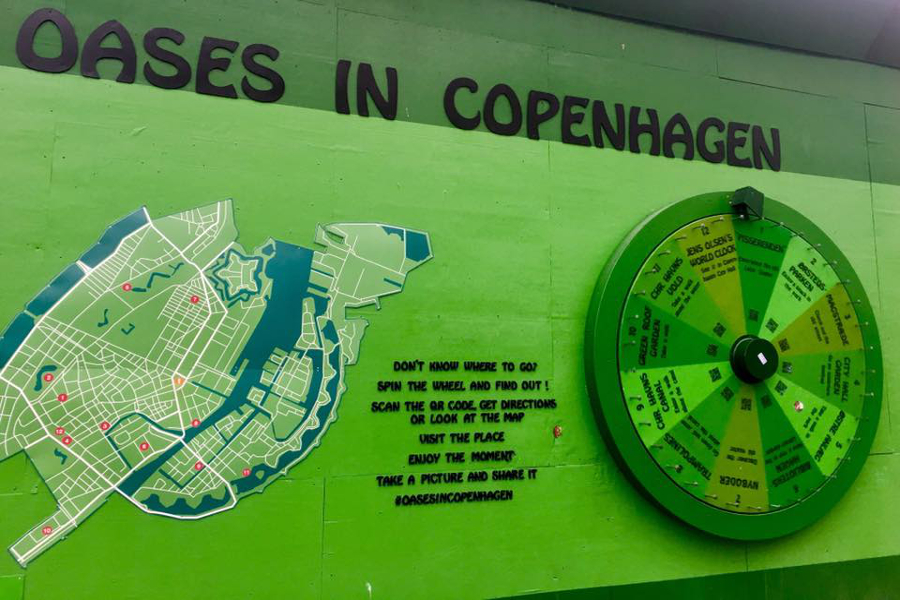
book in press Singh, R. & Agarwal, N. K. (in press 2021; available for preorder). You know the glory, not the story: 25 Journeys towards Ikigai. World Scientific Publishing.
book in press Agarwal, N. K. & Singh, R. (in press 2021). Engineering to Ikigai: 25 Journeys towards Purpose. (South Asia version) 16 leaves - Newgen Knowledge Works.
panel Buchanan, S. A., Sauer, S., Quan-Haase, A., Agarwal, N. K., & Erdelez, S. (2020). Amplifying Chance for Positive Action and Serendipity by Design. Proceedings of the 83rd Annual Meeting of the Association for Information Science & Technology, Oct 23-28, 2020, 57(1), e288.
panel Erdelez, S., Heinström, J., Makri, S., Björneborn, L., Beheshti, J., Toms, E., & Agarwal, N. K. (2016). Research perspectives on serendipity and information encountering. Proceedings of the Association for Information Science and Technology, 53(1), 1-5.
journal article Agarwal, N.K. (2015). Towards a Definition of Serendipity in Information Behaviour. Information Research, 20(3), paper 675.
invited panel Presenter/Discussant in Serendipity and its relationship with the Contextual elements in Information Behavior. SCORE: Serendipity, Chance and Opportunity in Information Discovery, Montreal, Canada, Apr 28-May 1, 2012.
invited panel Discussant in Conceptual space of serendipity in information behavior. International Workshop on Opportunistic Discovery of Information, Columbia, MO, Oct 21-22, 2010.
Disinformation and Fake News

poster Agarwal, N.K. & Alsaeedi, F. (2020). Understanding and fighting disinformation and fake news: Towards an information behavior framework. In Proceedings of the 83rd Annual Meeting of the Association for Information Science & Technology (ASIS&T AM 2020), October 23-28, 2020, 57, e327.
short paper Erdelez, S., Agarwal, N.K., & Jahnke, I. (2019). Serendipity and critical thinking: Fighting disinformation in a socio-technical society. ASIS&T SIG Social Informatics Research Symposium, 82nd Annual Meeting of the Association for Information Science & Technology, Melbourne, Australia, October 19, 2019.
Sense-Making

conference paper Agarwal, N.K. (2012). Making sense of sense-making: Tracing the history and development of Dervin's Sense-making methodology. In T. Carbo & T.B. Hahn (Eds.). International perspectives on the history of information science & technology: Proceedings of the ASIS&T 2012 Pre-Conference on the History of ASIS&T and Information Science and Technology. (pp. 61-73). Medford, NJ: Information Today.
conference paper Agarwal, N.K. (2012). Making the Bhagavad Gita accessible: Enabling sense-making through synthesis and visualization. In Preservation and access: Facilitating research in information and religion: Proceedings of the Second Annual International Conference on Information & Religion, Kent, OH, May 18-19 (pp. 1-22).
Health Information Behavior / Technology Adoption

journal article Koeniger-Donohue, R., Agarwal, N.K., Hawkins, J.W. & Stowell, S. (2014) Role of nurse practitioners in encouraging use of personal health records. The Nurse Practitioner, 39(7), 1-8.
short paper/poster Agarwal, N.K., Xu, Y.(C.), Lawrence, H. & Agarwal, A. (2012). Effect of institutional factors on source and channel use by medical residents. Proceedings of the Association for Information Science & Technology Annual Meeting, Baltimore, MD, Oct 26-30, 49(1), 1-4.
conference paper Agarwal, N.K., Wang, Z., Xu, Y. (C.) & Poo, D.C.C. (2007). Factors affecting 3G adoption: An empirical study. In Proceedings of the 11th Pacific Asia Conference on Information Systems, Auckland, New Zealand, Jul 3-6 (pp. 256-270). Paper 3.
Information Search and Retrieval / System Development
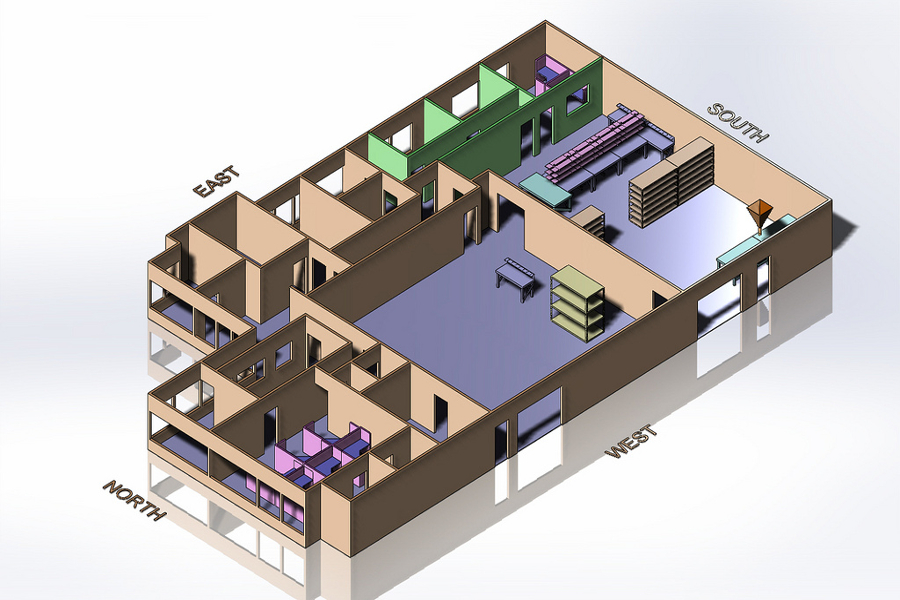
journal article Agarwal, N.K. & Lawrence, H. (2014). Office location map of individuals in the library and other college campus buildings. The Journal of Web Librarianship, 8(3), 305-323.
short paper/poster Benoit, G. & Agarwal, N. (2012) All-visual retrieval: How people search and respond to an affect-driven visual information retrieval system. Proceedings of the Association for Information Science & Technology Annual Meeting, Baltimore, MD, Oct 26-30, 49(1), 1-4.
journal article Agarwal, N. K., & Poo, D. C. (2007). HCI and information search: Capturing task and searcher characteristics through 'user ability to specify information need'. Lecture Notes in Computer Science, Part III-Retrieval, Searching, Browsing and Navigation, 4557, 373-382.
book chapter Agarwal, N.K. & Poo, D.C.C. (2007). Collaborating to search effectively in different searcher modes through cues & specialty search. In D.H. Goh & S. Foo (Eds.) Social Information Retrieval Systems: Emerging Technologies & Applications for Searching the Web Effectively (pp. 1-30), Idea Group Inc.
conference paper Agarwal, N.K., Poo, D.C.C. & Leo, D.M.T. (2007). Developing buddy: Towards greater dependability & maintainability in meta-search. In M. Khosrow-Pour (Ed.) Proceedings of the Information Resources Management Association Conference, Vancouver, B.C., Canada, May 19-23 (pp. 458-462). Hershey, PA: IGI Global.
journal article Agarwal, N.K. & Poo, D.C.C. (2006). Meeting knowledge management challenges through effective search. International Journal of Business Information Systems, 1(3), 292-309.
conference paper Agarwal, N.K., Poo, D.C.C. & Teo, K.Y. (2006). Component-based development of MILLS: A case study in the development of an inter-library loan software system. In P. Jalote (Ed.) Proceedings of the 13th Asia Pacific Software Engineering Conference, Bangalore, India, Dec 6-8 (pp. 37-44). Los Alamitos: IEEE Computer Society.
conference paper Agarwal, N.K. & Poo, D.C.C. (2006). Making sense of an electronic document: Visualization strategies for concept presentation. In Proceedings of the 10th IEEE International Enterprise Distributed Object Computing Conference Workshops, Hong Kong, Oct 16-20 (pp. 56-59). Los Alamitos: IEEE Computer Society.
conference paper Agarwal, N.K. & Poo, D.C.C. (2006). Information searcher-provider fit through information presentation & visualization techniques. In V.P. Guerrero-Bote (Ed.) International Conference on Multidisciplinary Information Sciences & Technologies, Merida, Spain, Oct 25-28 (pp. 69-73). Merida: Open Institute of Knowledge (Instituto Abierto del Conocimiento).
full-paper presentation Agarwal, N.K. (2006). Effective information management through an information searcher-provider fit framework. 7th APRU Doctoral Students Conference, Singapore, Jul 17-21.
conference paper Agarwal, N.K., Poo, D.C.C. & Goh, J.M. (2005). Managing quality of information retrieval for effective knowledge management. In Proceedings of the 3rd World Conference for Software Quality, Munich, Germany, Sep 26-30 (pp. 205-214). I.
conference paper Agarwal, N.K., Gupta, A.K., Bin, W. Barbosa, L.O. (1999). Scaleable delivery mechanism for VBR MPEG-2 video streams over the Internet. In Proceedings of the IEEE Pacific RIM Conf. on Communications, Computers & Signal Processing, Victoria, B.C., Canada, Aug 23-25 (pp. 284-287).
conference paper Shaw, V., Wahab, A., Agarwal, N.K. & Chan, G. (1998). Adaptive traffic management model for Internet/electronic commerce. In Proceedings of the 17th IEEE International Conference on Consumer Electronics, Los Angeles, CA, Jun 2-4 (pp. 24-25).
conference paper Shaw, V.M., Wahab, A., Sung, S. & Agarwal, N.K. (1998). An intelligent web browser for Internet/electronic commerce. In Proceedings of the 17th IEEE International Conference on Consumer Electronics, Los Angeles, CA, Jun 2-4 (pp. 80-81). Digest of Technical Papers.
Knowledge Management in Libraries / Service Innovation

journal article Agarwal, N.K. & Islam, M.A. (2020). Looking for Knowledge Management in Library and Information Science Research. Global Knowledge, Memory and Communication, 69 (8/9), 697-716.
journal article Islam, M.A. & Agarwal, N.K. (2020). What is the impact of Library and Information Science on Knowledge Management research? VINE: The Journal of Information and Knowledge Management Systems, 51(1), 1-26.
poster Islam, M.A. & Agarwal, N.K. (2019). How is Knowledge Management represented in Library and Information Science research? 82nd Annual Meeting of the Association for Information Science & Technology, Melbourne, Australia, Oct 19-23, 2019.
conference paper Agarwal, N.K. & Islam, M.A. (2018). Ascertaining the place of Library & Information Science in Knowledge Management research. In Proceedings of the 81st Annual Meeting of the Association for Information Science & Technology, Vancouver, Canada, Nov. 9-14, 55(1), 2-10.
journal article Islam, M.A., Agarwal, N.K., & Ikeda, M. (2017). Effect of Knowledge Management on Service Innovation in Academic Libraries. IFLA Journal. 43(3), 266-281.
journal article Islam, M.A., Agarwal, N.K. & Ikeda, M. (2015). How do academic libraries work with their users to co-create value for service innovation?: A qualitative survey. Qualitative and Quantitative Methods in Libraries, 4(3), 637-658.
journal article Islam, M.A., Agarwal, N.K. & Ikeda, M. (2015). Conceptualizing value co-creation for service innovation in academic libraries. Business Information Review, 32(1), 45-52.
journal article Agarwal, N.K. & Islam, M.A. (2015). Knowledge retention and transfer: How libraries manage employees leaving and joining. VINE: The Journal of Information and Knowledge Management Systems. 45(2), 150-171.
journal article Islam, M.A., Agarwal, N.K. & Ikeda, M. (2015). Knowledge management for service innovation in academic libraries: A qualitative study. Library Management, 36(1/2), 40-57.
short paper/poster Islam, M.A., Agarwal, N.K. & Ikeda, M. (2015). How does Knowledge Management affect Service Innovation in Academic Libraries?: A survey study. Proceedings of the Association for Information Science and Technology Annual Meeting, St. Louis, MO, Nov 6-10, 2015, 52(1), 1-4.
journal article Islam, M.A., Agarwal, N.K. & Ikeda, M. (2014). Library adoption of knowledge management using Web 2.0: A new paradigm for libraries. IFLA Journal. 40(4), 317-330.
journal article Agarwal, N.K. & Islam, M.A. (2014). Knowledge management implementation in a library: Mapping tools and technologies to phases of the KM cycle. VINE: The Journal of Information and Knowledge Management Systems, 44(3), 322-344.
abstract Agarwal, N.K. (2010). From traditional to futuristic libraries: Will we go a full circle and want to be traditional again? In A. Katsirikou (Ed.) Book of Abstracts: Qualitative and Quantitative Methods in Libraries QQML2010 International Conference, Chania, Crete, Greece, May 25-28 (pp.32-33).
Knowledge Management in Universities
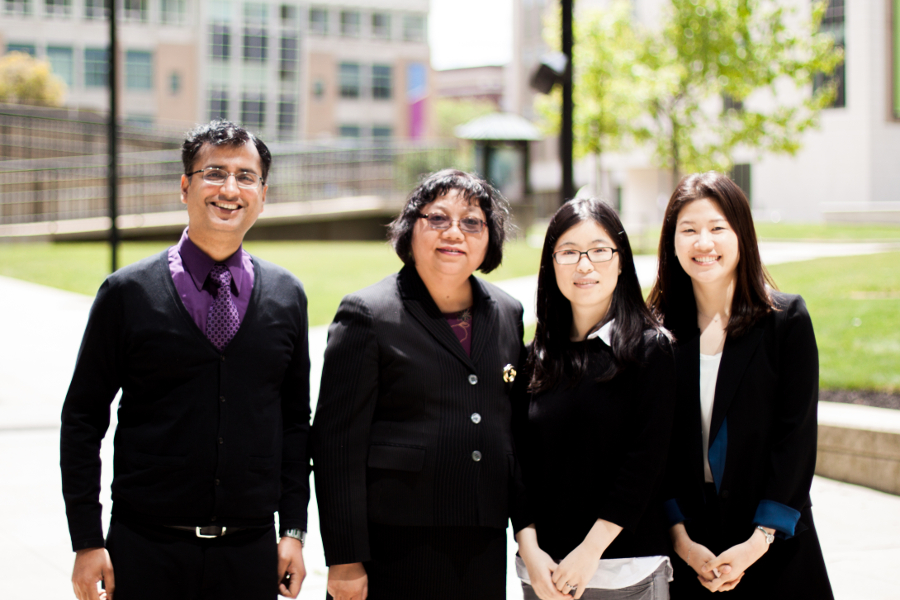
journal article Marouf, L.N. & Agarwal, N.K. (2016) Are faculty members ready? Individual factors affecting Knowledge Management readiness in Universities. Journal of Information and Knowledge Management, 15(3), 1650024, 28 pages.
journal article Agarwal, N.K. & Marouf, L. (2016). Quantitative and qualitative instruments for knowledge management readiness assessment in universities. Qualitative and Quantitative Methods in Libraries, 5(1), 149-164.
journal article Agarwal, N.K. & Marouf, L.N. (2014). Initiating knowledge management in colleges and universities: A template. International Journal of Knowledge Content Development & Technology, 4(2), 67-95.
Knowledge Management in other contexts

panel Agarwal, N.K. & Islam, M.A. (2019). Mobilizing International ASIS&T Chapters. International Incubator Session, 82nd Annual Meeting of the Association for Information Science & Technology, Melbourne, Australia, Oct 19-23, 2019.
conference paper Agarwal, N.K. & Islam, M.A. (2016). How can professional associations continue to stay relevant? Knowledge Management to the rescue. In Proceedings of the Association for Information Science & Technology Annual Meeting, Copenhagen, Denmark, Oct 14-18, 53(1), 1-10.
conference paper Islam, M.A., Agarwal, N. & Ikeda, M. (2014). Knowledge sharing among information professionals in Bangladesh: A quantitative analysis. BOBCATSSS 2014, Barcelona, Spain, Jan 29-31, 2014 (pp.1-5).
invited panel Panelist in Scholarship: Information vs Knowledge. 62nd Annual Meeting of the American Academy of the History of Dentistry, Boston, MA, Oct 18, 2013.
journal article Agarwal, N.K. & Poo, D.C.C. (2008). Capturing tacit knowledge across different domains: Knowledge community (K-Comm). In A. Mitra (Ed.) Special Issue on KM, International Journal of Business Information Systems, 3(6), 668-685.
conference paper Poo, D.C.C., Lek, H.H. & Agarwal, N.K. (2010). Collaborative learning in a knowledge community. International Conference on Computer Science Education: Innovation & Technology, Phuket, Thailand, Dec 6-7 (5 pages).
conference paper Lek, H.H., Poo, D.C.C. & Agarwal, N.K. (2009). Knowledge community (K-Comm): Towards a digital ecosystem with collective intelligence. Third IEEE International Conference on Digital EcoSystems and Technologies, Istanbul, Turkey, Jun 1-3 (pp. 211-216).
conference paper Agarwal, N.K., Poo, D.C.C. & Tan, K.H. (2007). Impediments to sharing knowledge outside the school: Lessons learnt from the development of a taxonomic e-learning portal. In Proceedings of the International Conference on Information Systems, Montreal, Canada, Dec 9-12 (pp. 1-16). Paper 81.
Learning and Education

abstract Agarwal, N.K. (2021, accepted). Teaching online: Instructional design and practical strategies for remote education. Annual Conference of the New England chapter of the Association for Information Science and Technology (NEASIS&T), March 5, 2021.
invited panel Seadle, M., Hirsh, S., & Agarwal, N.K. (2021). The Rise of Online Education: Impact of COVID-19 Pandemic on Teaching and Learning. iFederation Special Panel with leadership of iSchools, ALISE & ASIS&T. iConference 2021, Mar 30, 2021. (upcoming)
panel Agarwal, N. K., Oh, K.-E., Williams, R., Freeburg, D., Rosenbaum, H., & Kwasnik, B. (2020). Standing Out in the Academic LIS Job Market: An Interactive Panel not just for Doctoral Students. Proceedings of the 83rd Annual Meeting of the Association for Information Science & Technology (ASIS&T AM 2020), October 23-28, 2020, 57(1), e286.
journal article Campana, K. & Agarwal, N.K. (2019). The Landscape of Research on Learning in Low-tech Environments. Information and Learning Sciences. 120(11/12), 687-703.
invited journal article Agarwal, N.K. & Campana, K. (2019). Insights into Learning in Low-tech, Information-rich Environments: Editorial. Information and Learning Sciences. 120(11/12), 681-686.
conference paper Agarwal, N.K. & Rahim, N.F.A. (2019). Is there a mantra for successful collaboration? Mapping faculty experience in facilitating cross-culture collaboration. In Proceedings of the Asia-Pacific Regional Conference of the Association for Information Science & Technology, Phnom Penh, Cambodia, January 3-4, 77-90.
panel Pollock, D., Williams, R., Dumas, C., Agarwal, N. K., & Erdelez, S. (2019). Teaching technology in library and information science: Preparing students with diverse needs for the challenges of an interconnected world. Proceedings of the Association for Information Science and Technology, Melbourne, Australia, Oct 19-23, 2019, 56(1), 565-568.
panel Moderator/Panelist in Hartnett, L., Singh, R., & Zamir, H. (2017). Navigating the next step: An interactive panel for doctoral students. Proceedings of the Association for Information Science and Technology, Washington, D.C., Oct 27-Nov 1, 2017, 54(1), 559-561.
panel Moderator/Panelist in Singh, R. & Miller, K. (2015). Standing out in the academic LIS job market: An interactive panel for doctoral students. Proceedings of the Association for Information Science and Technology, St. Louis, MO, Nov 6-10, 2015, 52(1), 1-4.
journal article Agarwal, N.K. & Rahim, N.F.A. (2014). Student expectations from a cross-cultural virtual collaboration: A qualitative analysis. Qualitative and Quantitative Methods in Libraries, 3(1), 221-234.
abstract Agarwal, N.K. (2013). Information literacy of LIS students: Gathering and synthesizing sources for a literature review. In A. Katsirikou (Ed.) QQML 2013 Book of Abstracts: Qualitative and Quantitative Methods in Libraries International Conference, Rome, Italy, Jun 4-7, Special Session on Information Literacy in the curriculum across Disciplines (pp. 136-137).
panel Moderator/Panelist in Miller, K. & Christopherson, L. (2013). Preparing for the academic job market: An interactive panel for doctoral students. Proceedings of the Association for Information Science and Technology, Montreal, Canada, Nov 1-6, 2013, 50(1), 1-4.
panel Miller, K., & Agarwal, N. K. (2012). Preparing for the academic job market: An interactive panel for doctoral students. Proceedings of the American Society for Information Science and Technology, Baltimore, MD, Oct 26-30, 2012, 49(1), 1-4.
panel Panelist in Sugimoto, C. & Christopherson, L. (2011). Preparing for the academic job market: An interactive panel for doctoral students. Proceedings of the Association for Information Science and Technology, New Orleans, LA, Oct 9-13, 2011, 48(1), 1-4.
Research Trends / Methods

conference paper Agarwal, N.K. & Islam, M.A. (2020). Journal of the Association for Information Science and Technology: Analysis of two decades of published research. In Proceedings of the 83rd Annual Meeting of the Association for Information Science & Technology, October 23-28, 2020, 57, e220, 1-18.
edited conference proceedings Erdelez, S.& Agarwal, N.K. (Eds.) (2017). Proceedings of the 80th Annual Meeting of the Association for Information Science and Technology, Hoboken, NJ: Wiley, 54(1), i-xviii, 1-858.
journal article Turcios, M.E., Agarwal, N.K. & Watkins, L. (2014) How much of library and information science literature qualifies as research? The Journal of Academic Librarianship, 40(5), 473-479.
short paper/poster Turcios, M., Agarwal, N.K. & Watkins, L. (2012). Library & information science literature: How much of it is research? Proceedings of the Association for Information Science & Technology Annual Meeting, Baltimore, MD, Oct 26-30, 49(1), 1-4.
conference paper Agarwal, N.K. (2011). Verifying survey items for construct validity: A two-stage sorting procedure for questionnaire design in information behavior research. Proceedings of ASIS&T 2011 Annual Meeting, New Orleans, Louisiana, Oct 9-13, 48(1), 1-8.
conference paper Agarwal, N.K. (2011). Evaluation of information services in the library: Areas identified by graduate students. In A. Katsirikou & C. Skiadas (Eds.) New trends in qualitative and quantitative methods in libraries: Selected papers presented at the 2nd Qualitative and Quantitative Methods in Libraries, 2010 (pp. 77-88). Singapore: World Scientific Publishing.
Happiness and Information / Identity
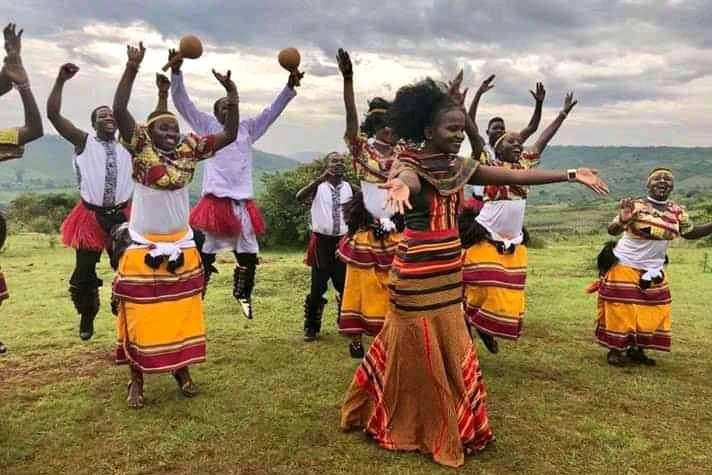
short paper/poster Agarwal, N.K. (2012). Happiness: Exploring relationship with information and place in information science research and education. Proceedings of the Association for Information Science & Technology Annual Meeting, Baltimore, MD, Oct 26-30, 49(1), 1-4.
conference paper Agarwal, N.K. (2009). Use of technology to assert identity: Towards a theory of expanding circles of identity. 10th APRU Doctoral Students Conference, Kyoto, Japan, Jul 6-10, 1-13.
Research Interest
My research interest is in Information Behavior (IB) and Knowledge Management (KM). These are areas of study within Information Science & Technology (IS&T). Information Science can be understood as a triangle connecting ‘person’, ‘information’, and ‘technology’. Thus, a large part of research interests revolves around the interaction spaces between the person and information, often mediated (and sometimes, not) by technology.
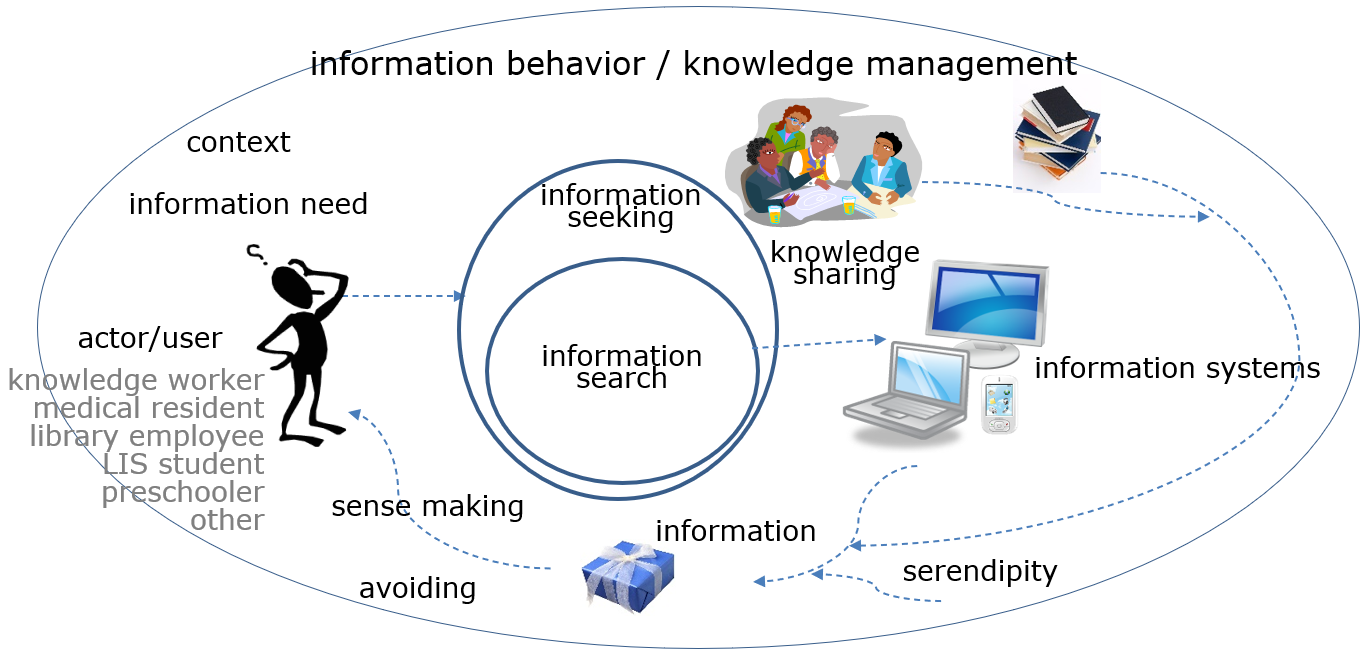
Information Behavior. At the heart of it is the actor/user, who Dervin describes as “a body-mind-heart-spirit moving through time and space, with a past history, present reality, and future dreams or ambitions”, who could be a knowledge worker, a medical resident, a library employee, an LIS student, a child, or a professor at a university. This person might have a certain need for information, which might arise out or a work context or out of an everyday-life curiosity. To fill this ‘gap’, the person starts looking for information from one or more sources. These could be human sources (friends, colleagues, librarian) with whom the person interacts face-to-face, printed books or manuals, or electronic sources (Google, Wikipedia, etc.). The person might also interact with human sources via a laptop, tablet, or smartphone via synchronous (phone/audio/video calls, or chat), or asynchronous channels (e.g., email or SMS). The person tries to make sense of the information received, and repeats the search process until a point at which, the person decides to stop, not because all questions are answered, but the person might get tired or needs to move on to other things, or might think that the answers until that point are enough for the task at hand. Sometimes, one finds information serendipitously when not really looking for it. There are also times when the person avoids information when they don’t want to deal with it e.g., the rate of spread of Coronavirus infections, or a call or a message from a friend or a colleague who one is ignoring. As the actor receives the information, they also need to vet it for reliability, and ascertain if it is mis/disinformation or not. All this process of information need, seeking, using, finding, avoiding, etc. can be seen as falling under the wider umbrella of human information behavior.
Knowledge Management. KM is a related term where we look at this phenomenon not from an individual’s point of view, but from an organizational point of view. Thus, while IB can be concerned with an individual seeking information from friends or colleagues at work, the same can be viewed in KM as employees in an organization sharing the knowledge they possess with other coworkers. The unit of analysis here is an organization such as a company, a library, an archive, or a university, or a sub-unit of this organization. KM can be seen as a collaborative and integrated approach adopted organization-wide to ensure that the organization’s knowledge assets are best utilized to increase organizational performance. These knowledge assets include those that are in an explicit form (documents, books, reports, web pages, etc.), as well as those in the tacit form (difficult to articulate; the know-how that resides in people’s minds). These map to information sources when viewed from the perspective of IB. Looking at both IB and KM has allowed me to investigate the journey of the actor as they straddle between information and knowledge, and among the myriad of technology tools that support the knowledge cycle processes, such as knowledge creation or capture, sharing or transfer, and application or use.
Ongoing Projects
Turns and serendipity in life journeys of information scientists: A biographical research project
Investigating the response to non-response behavior of smartphone users
An information behavior model on disinformation and fake news
Information encountering and organizational knowledge management
Knowledge Management for Libraries: Surviving to Thriving
Towards a unified model of information seeking behavior
Information seeking behavior of food industry family owners
Towards effective regional and international collaboration in Library and Information Science
Context in the context of children interacting with information
A context-based investigation into the information seeking behavior and source use by medical residents
Modeling happiness
Making the Bhagavad Gita accessible

